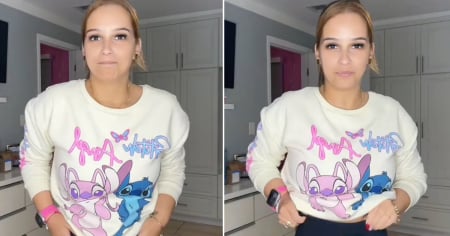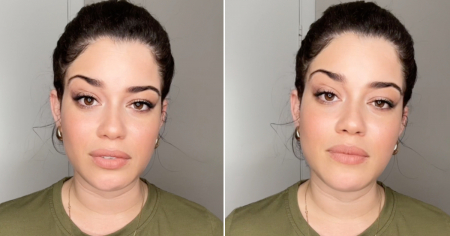"I am Cuban, but I would have loved to be born in a country other than Cuba. I am Cuban, but I wouldn't choose a Cuban as a partner. I am Cuban, and I hate going to Cuba. I am Cuban, and I typically don't associate with Cubans. I am Cuban, and as you already know, I don't feel Cuban." These were the striking words of @teresacreandoestilofg, a Cuban living in Miami who decided to join one of the most talked-about TikTok trends recently: "We express our opinions, but we don't judge."
This trend, which has become popular among content creators and users in general, encourages people to share confessions, thoughts, or personal experiences that might be considered controversial or contentious, with the idea that others will "listen without judging." The phrase that concludes the video, "we give opinions but do not judge," often serves as an ironic touch, reminding the viewer that, although they may have opinions, the ideal approach is to avoid criticizing or attacking what others choose to share.
In the case of @teresacreandoestilofg, her video has sparked an intense debate on social media. While some users firmly rejected her words, others found in her a voice with which they identify. Among the most critical comments, there were those who accused her of renouncing her country and roots. “Never turn your back on the country that gave you life,” one user commented. Another, upset by her stance, added: “Your account is full of Cubans; be consistent and get rid of us.” Some even resorted to irony with phrases like: “Not even Judas dared to go that far,” or “You’d be Haitian every time I see this kind of thing.”
However, not everyone judged her. There were those who not only supported her words but also asserted that they felt exactly the same way. "Mana, am I you or are you me? We all agree on the five points," replied one follower, while another commented, "I think exactly like you; I haven't set foot on that island in 20 years." Some even tried to empathize with the context, seeking to understand the reasons behind her stance. "The regime has created a culture that makes you uncomfortable. I understand you," wrote one user. Others took the opportunity to ask directly, "What nationality do you identify with?"
As the video continues to gather reactions and comments, it is true that it has sparked a conversation among Cubans, both those who take pride in their roots and those who, for various reasons, prefer to distance themselves from them. Beyond the differing opinions, the phrase "we express our opinions but do not judge" remains crucial in these trends, where personal confessions encounter all kinds of responses in a space that, in theory, should be free of judgment.
Frequently Asked Questions About the Opinions of Cubans Abroad
Why doesn't Teresa from Creando Style feel a connection with other Cubans in Miami?
Teresa Creando Style feels that she does not identify with some of the stereotypes associated with Cubans in Miami, such as the use of language that she finds vulgar or certain styles of dress. Additionally, she has expressed that she does not feel connected to the culture that the regime has created in Cuba.
What is the trend "We express our opinions, but we don't judge," and why is it relevant?
The trend "We express our opinions, but we don't judge" on TikTok encourages people to share their controversial thoughts or personal experiences with the expectation that others will listen without passing judgment. It is significant because it creates a space where users can express contentious opinions, which can lead to intense debates, as seen in the case of Teresa Creando Style.
How has the Cuban community reacted to Teresa Creando Style's statements?
The Cuban community has expressed divided reactions to Teresa Creando Style's statements. Some criticized her stance for turning her back on her roots, while others supported her feelings, relating to her personal experience of disconnection from the current Cuban culture.
What impact does Cuban emigration have on cultural perceptions?
Cuban emigration generates a diversity of cultural perceptions among both Cubans living abroad and those who remain in Cuba. Some emigrants may feel disconnected from their roots due to personal or cultural experiences in their new environments, while others keep their Cuban identity alive, which can lead to discussions and reflections on cultural identity.
Filed under:





